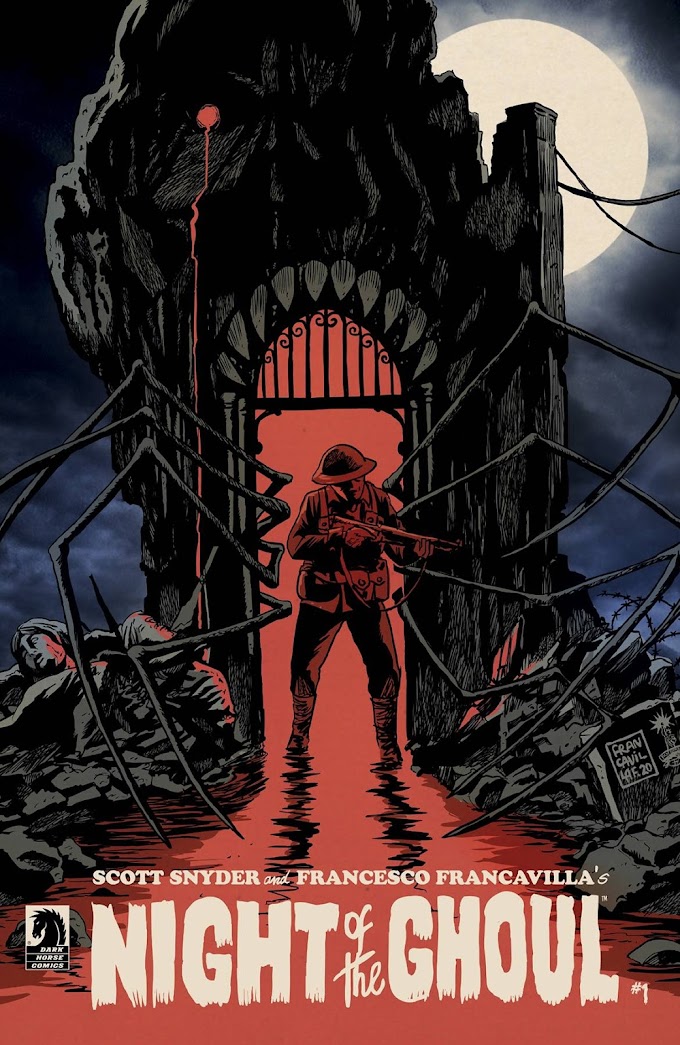Written by Duane Swierczynski
Art by Nelson Daniel
Published by IDW
Out on his own, off in the wasteland, and forced to only use analog technology, Dredd sets out to stop the Circuit Court from destroying Mega-City 1 and setting up their own jurisdiction in a third arc that find this series really stalling out.
Stripped of some of the cooler parts of the first two trades (like the side stories that made it feel more like its cousin, 2000 AD), this trade was honestly a bit of a disappointment. While Dredd's character changes from writer to writer, it really felt like Swierczynski was straying pretty far off-model, finding the unswerving law-giver compromising in order to continue his quest to get at the circuit court. I haven't read enough Dredd to say, "He'd never strike a deal" but I admit, when I got to that point in the narrative, it had me thinking more about whether or not things were in-character rather than how the decision served the story.
Anytime that happens, it sours me on the story. I have no problem with stretching things a bit, to explore a new aspect of a familiar character, but when the stretch makes a reader want to cry foul, I think you have an issue.* Moments like that make me wonder why the story itself wasn't changed to allow for a different solution, especially since the moment literally hits the reset button for Dredd.
Differences over character approach aside, Dredd's move into the wasteland felt, well--wasted. He's got to get through the obstacles as quickly as possible, which is a shame because I wouldn't have minded at all spending an entire arc dealing with an amusement park full of demented rides and mutants OR a better fight against the cannibalistic Angel Gang and their unkillable chef, where the Ooze-ex-machina saves the day. It's rare to complain about a comic not slowing down sufficiently, but the whole thing feels rushed so that Dredd can get to the Circuit Court and be ready to return to Mega-City 1 by the end of the trade.
I don't think I'd have minded as much--after all, Dredd normally does things in 6-page chunks--except that the whole thing felt more about Dredd catching lucky breaks than Dredd making his own luck. Sure, he has moments where has to make the call--but it just felt like too often, just the right thing was available or something had to click in the exact sequence to work properly. It's just too many coincidences for my liking, and I'm hoping for better in the next arc.
Given entire issues to fill, artist Nelson Daniel doesn't disappoint, except that his mutants were a bit, well, muted. This was a chance to really explode artistically, and it came off more restrained than I'd expected. He still does a great job shaping the world--and illustrating some particularly disgusting concepts--but some of the variety he used in creating Mega-City 1 was lacking here. I'm not sure why the wasteland and the Circuit Court didn't get as much detail as the main city, but it could be the difference in having to draw a full comic.
That doesn't mean I didn't like what he opted to portray--the amusement park rides are demented, many scenes are extremely gruesome and brutal, and Dredd of course looks on-model the entire time--but like this series as a whole, it felt like things were held back. I absolutely loved the changed perspective for the mutant who can see variable futures, especially when how he "sees" these futures changes after he faces the cannibal gang. The layouts remained very strong and did the most they could with some of the weakest scripting moments the series has had so far.
Overall, this one dulled my enthusiasm a bit for the American version of Judge Dredd. Returning to the city should do a lot to help matters, but the problems I had from the start, most notably the fact that Swierczynski only takes on safe targets (like celebrity chefs), are still here. I was okay with that when the plots were strong, but another weak arc like this might find me letting this one rest and sticking to the original version only. Your mileage may very, but I can't say I'd recommend this one right now.
*The clearest example of this was when JMS turned Peter Parker into a bully. There's plenty of things Peter could be as a teen, but a bully? Oh hell no. That was my breaking point.
Footer Copyright
Design by - Blogger Templates | Distributed by Free Blogger Templates






![Sweat and Soap [Ase to Sekken] by Kintetsu Yamada](https://blogger.googleusercontent.com/img/b/R29vZ2xl/AVvXsEgMnQltxjWqGS1_duhCp9Er1a0NbALuSFrqvjaV4_PjN_w67xCGghYt-l0qKyqTH7Ei7gbq_mxVq8aPAuOiyaArwAMLJWhpGmOYaARUBnwvjmv2-ZIe20m_zR5CvKnPdI6US_AuOnmi3gSX/w680/57525895-BA7E-4EF8-9FE4-89F9C164E1A4.jpeg)

